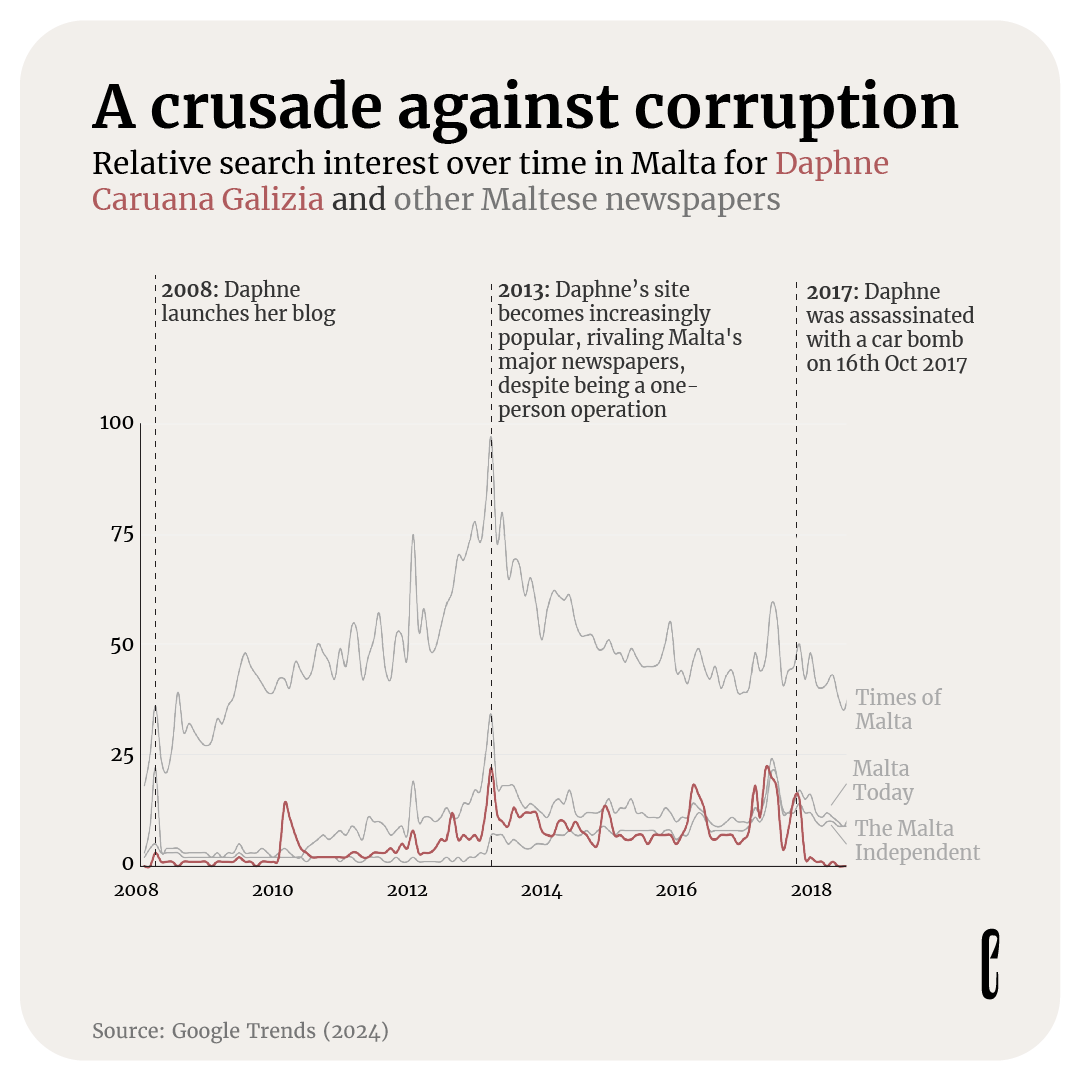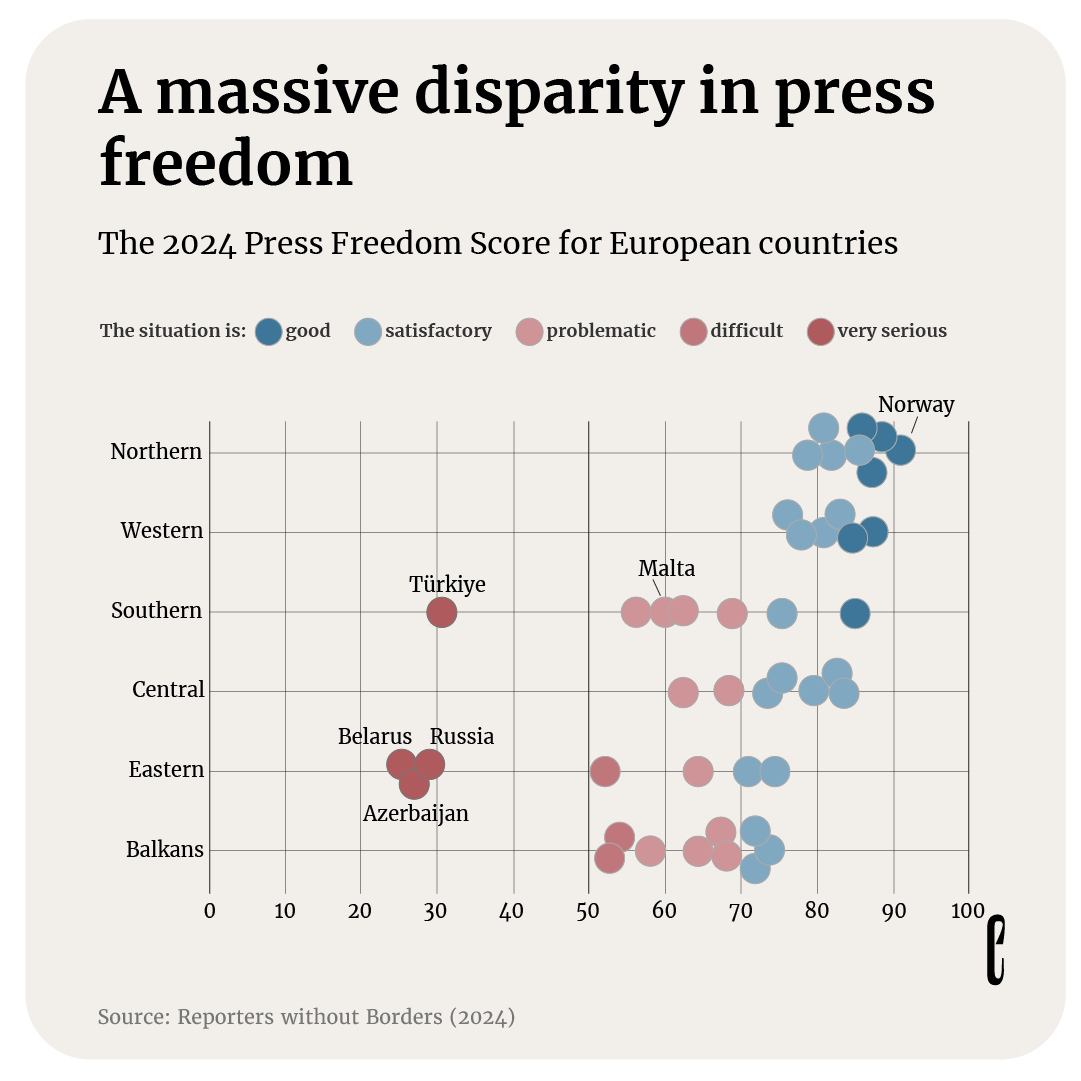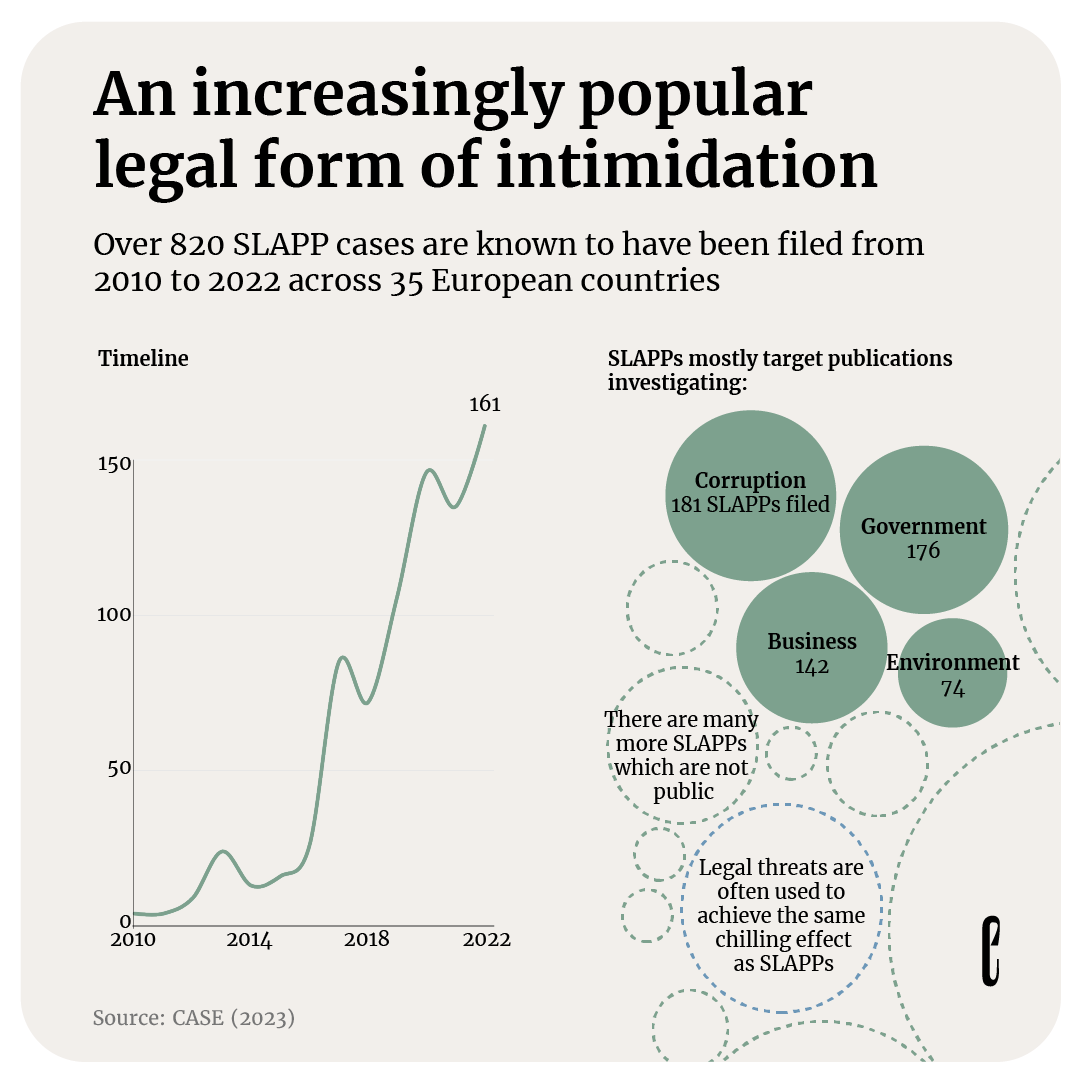How a journalist's unsolved murder impacts your life
The European Correspondent - Oct 2024
Yanika Borg, Belle de Jong
Seven years after the assassination of Maltese investigative journalist Daphne Caruana Galizia, justice awaits. A lack of accountability threatens our press freedom and democracy.
Everyone in Malta knows Daphne Caruana Galizia. Her blog received as many visits a day as the country's population: half a million. Covering corruption, nepotism, and money laundering by people in power, she had fans and foes all over the island – until 16 October 2017.
That day, Malta's 'one-woman Wikileaks' was killed with a car bomb, an assassination the state was found responsible for. Threats had become part of her life long before they ended it; her house was set on fire, her car's tires were slashed, and her dog's throat was cut.
Killing a journalist has been called "the world's safest crime": in 8 out of 10 cases, no one is held to account. In Caruana Galizia's case, seven years later, only those who planted the bomb are in prison. The masterminds remain free due to continued corruption and a lack of accountability within Malta's institutions.
Press freedom affects us all
Journalists should hold power to account and keep the public informed, serving as the 'fourth estate' of democracy. When they are silenced, abuses of power go unchecked, putting your rights, freedoms and tax money at risk. In Malta's most recent scandal, for example, government officials embezzled at least €355 million in tax money through a hospital renovation deal that failed to deliver any of its promises.
When journalists are, instead, free to report on issues like corruption, human rights violations, and environmental degradation, they help communities make informed decisions. Countries with higher press freedom enjoy greater happiness, better environmental conditions, and stronger human development, a 2012 study found. Finland, Denmark, and Iceland rank highly in both press freedom and happiness.
Conversely, countries with low press freedom, like Russia and Türkiye, tend to score poorly on happiness. When government censorship limits citizens' access to information, misinformation spreads, corruption thrives, and people have fewer protections.
Following Caruana Galizia's murder, press freedom in Malta saw a significant decline. Before her assassination in 2017, the country ranked 47th on the Press Freedom Index. By 2018, it dropped to 65 and it further plummeted to 82 in 2020. Today, Malta stands at 73 on the index.
The threats journalists face
Across Europe, journalists are threatened, attacked, and silenced. In 2018, Slovak journalist Ján Kuciak was murdered alongside his fiancée while investigating organised crime. Dutch journalist Peter R. de Vries, known for his work on criminal cases, was shot in broad daylight in 2021.
In some countries, government authorities get in the way of journalism, denying access to information and even detaining reporters. Currently, 138 journalists in Europe are in detention.
Journalists also face harassment and intimidation, especially female journalists. In 2023, 41 physical attacks on journalists were reported in Europe; mostly in Ukraine, but also in countries like France, Italy, and Serbia.
There is another, sneakier way to silence journalists – through the courts. Actors targeted by journalistic investigations tie reporters up in legal battles until they can't afford to keep reporting. These lawsuits are known as Strategic lawsuits against public participation (SLAPPs).
SLAPPs are increasingly used across Europe to financially and emotionally drain journalists into submission, with an increase from 570 cases in 2022 to over 820 cases in 2023. The median value of damages claimed is €15,150.
Malta has the highest number of SLAPP cases per capita in Europe, with nearly 20 lawsuits for every 100,000 people. Slovenia is in second place with a score of 2.
Moving forward
When the truth is suppressed through journalists' murder, harassment, or lawsuits, democracy falters. In protecting press freedom, we defend the truth – and our right to know it.
Despite constant attempts to silence her, Caruana Galizia continued exposing corruption at the highest level from her kitchen table. Her legacy lives on through initiatives like The Daphne Project, Forbidden Stories, and the Daphne Caruana Galizia Foundation, which bring together international reporters to continue silenced investigations and promote press freedom.
Seven years later, justice means both accountability and the courage to keep asking the tough questions Caruana Galizia never stopped asking.


